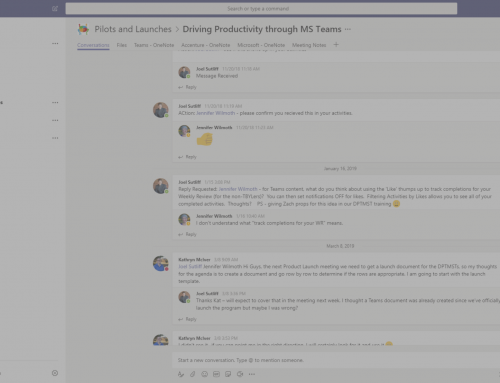By Steve Crawford
Employee engagement rates are highest they’ve been in nearly two decades, and if you ask me, there’s a good reason for that. According to Gallup, 26% of employees were engaged at work in 2000, but in the most recent 2018 study, that number has risen to 34%. The main reason that employers should be concerned about employee engagement is because organizations with high engagement rates have a 21% higher profitability than those with low engagement rates. So, what has led to this new rise in employee engagement? Well, employers are changing the way they operate, and they’re implementing new programs that support the physical, emotional, and financial well-being of their employees.
Take Bank of America for example—they’ve rolled out a new brand positioning that focuses on the impact individuals can have when they believe in their power. Sir Richard Branson, CEO of Virgin, believes that “when companies focus on employees first, effectively, in the end shareholders do well, the customers do better, and your staff remains happy.” Simply put, the secret to increasing employee engagement is putting employees first, and prioritizing their happiness and well-being above the actual work they’re doing. For any organization trying to improve their employee engagement and satisfaction rates, these are the four key areas they should be focusing their time, energy, and money on.
Recognizing Performance
Employee recognition plays a critical role in employee engagement, yet one study found that 40% of employees believe that it’s not a priority in their organization. In order for employees to feel engaged with the work they’re completing, they need to feel like the work matters. According to a Canadian workplace study, when employees were asked where their managers could improve their engagement, 58% responded with “give recognition.” Why? Because when employees feel valued and appreciated, they’re more motivated to do their job effectively, which leads to a higher employee output and eventually increases organizational profit in the long run. Increasing employee recognition can be done internally within an organization, or it can be done through a third-party to ensure every employees’ input is heard and validated.
Increasing Leadership Development
It was recently determined that 70% of the variance in employee engagement is determined by the quality of the manager. Team leaders have the ability to influence the work that employees are doing, and if they are not properly trained on how to use that power, they could negatively impact employee satisfaction.

However, it’s important to realize that not all development programs are built the same—if you want to have a high ROI and truly change the way your managers lead, it’s vital to invest in a developmental training experience that is customized to your organization. Rather than the generic one-program-fits-all development strategy, customized trainings are catered to your organization and employees, meaning the training is specifically created for your specific needs and goals. For example, Take Back Your Life! 1:1 Coaching sessions are never the same, as each one is specifically built for the leader going through the program. If you want to make sure that your employees are happy and engaged with their work, developing the individuals who lead them is a great place to start.
Creating Opportunities for Growth
As stated in Forbes, “Employees will always perform at their best when the environment is conducive to growth.” It’s as simple as that. Many people assume that growth is indicative of promotions, which frankly, isn’t always the case. There are many different ways that managers and organizations can offer growth opportunities to their employees without offering them a new title. For example, offering employees financial growth or personal growth are often just as effective as offering them career growth. When employees feel like they have something to work towards, and they don’t feel stagnant in their current position, they’ll be much more invested in their role. One of the best ways to offer opportunities for growth is by investing in organization or department-wide trainings, which will hone in on each person’s strengths, and show them how they can grow in their role and in the company.
Focusing on Physical and Emotional Well-Being
A recent study found that two-thirds of full-time employees experience burn out at work, which essentially translates to low engagement, poor performance, and decreased job satisfaction. Employee burnout can trigger a downward spiral for both the individual and organization, so companies should always take precautionary measures to avoid it. For starters, companies can implement well-being initiatives that teach employees how to better manage their workload, which leads to a greater work-life balance. Additionally, they can urge employees to use their paid-time-off, as it allows them to disconnect from work for a while, and come back refreshed and reenergized. Individuals that are living balanced lives are often the most successful ones, which is why organizations should always prioritize improving the physical and emotional well-being of their employees.
When it comes to improving employee satisfaction and engagement, sometimes simpler is better. Focusing on these three initiatives will not only make employees feel more valued and secure in their role, but they’ll also feel better about themselves in regards to their personal lives, too. Not every organization can offer Google-level perks like nap-pods and massage rooms, but every organization can make it a goal to improve the way employees feel about their work. If your organization could use assistance in improving or focusing on any of these three areas, contact me today to hear more about our Workflow Management or Well-Being programs.





